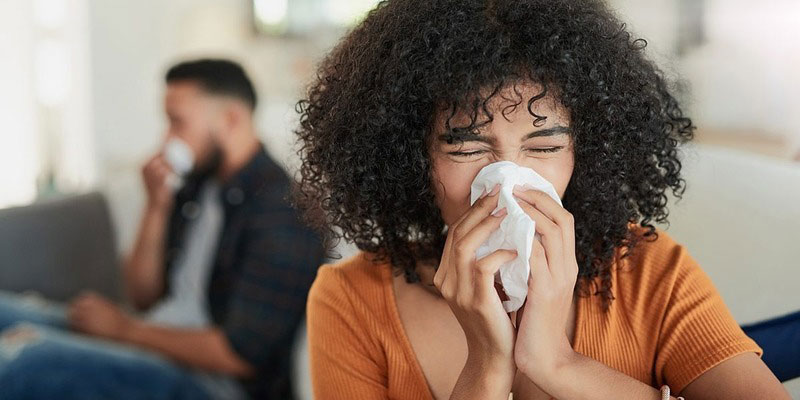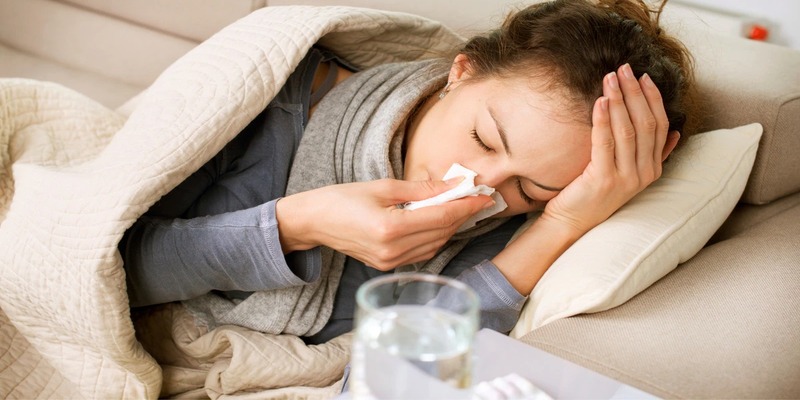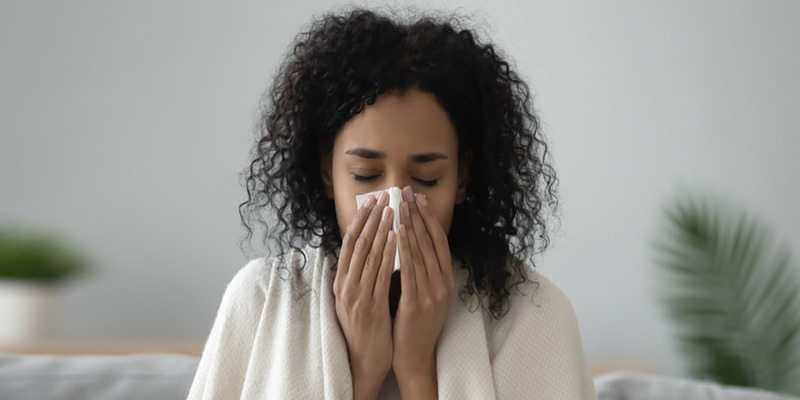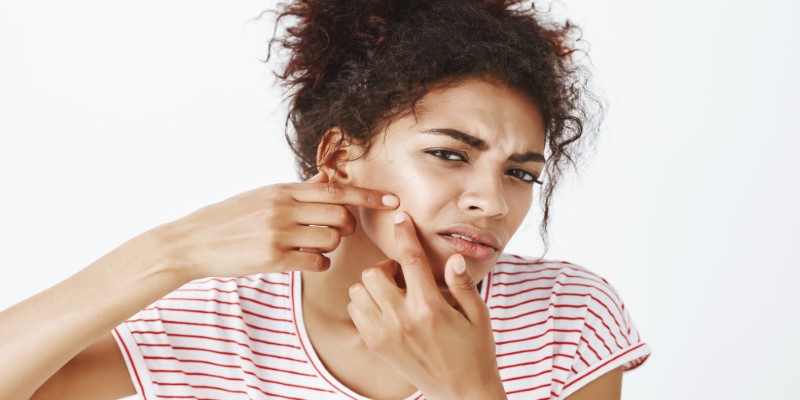
Nowadays, even so much as a sniffle, cough, or sneeze is a reason for alarm. Our imaginations immediately go to "Do I have COVID-19?" Mount Sinai Downtown's Director of Rhinology and Endoscopic Surgery, Dr. Madeleine R. Schaberg, explains how to differentiate between allergies and COVID-19.
How Are Allergies Different From COVID-19?

In contrast to the typical signs of COVID-19, which include a high temperature, a hacking cough, a sore throat, a rash, and a runny nose, those with allergic rhinitis and seasonal allergies tend to focus on the eyes and nose. In adults, a fever is defined as a body temperature higher than 99 degrees Fahrenheit; hence many people with COVID-19 symptoms will experience this.
Postnasal drip, face discomfort, sinus headaches, and moderate weariness are some more symptoms of seasonal allergies. Except for people with severe postnasal drip or allergy-induced asthma, we seldom hear people coughing due to seasonal allergies.
Sneezing is a common symptom of seasonal allergies. However, it has not been documented with COVID-19. Fever and body pains are typical symptoms of COVID-19, but they can indicate an allergy attack (malaise).
What Additional Signs May Someone Have COVID-19?
Many people will lose their sense of smell and other symptoms, such as coughing and fever (anosmia). Unless patients have severe congestion of the nasal passages or have polyps obstructing the nasal passages, we seldom observe a loss of smell in those with seasonal allergies.
COVID-19-related olfactory dysfunction is theorized to arise from virus-induced injury to the olfactory nerve and the olfactory neuroepithelium. It should also be stressed that COVID-19 is often an acute condition. Depending on the individual, symptoms might appear anywhere from 2 to 14 days after the initial infection. The duration of these symptoms will be 10–14 days.
In most cases, symptoms will start appearing within the 14-day exposure window. However, this might vary from person to person. This is true whether your situation is mild, moderate, or severe. As a rule, allergies are a long-term problem. In most cases, subtle symptoms will appear throughout the spring and summer allergy season.
How Do You Cure Allergies, Exactly?
Typically, OTC antihistamines are the first line of defense when treating allergies. Histamine acts as the primary inflammatory mediator in seasonal allergies.
Cetirizine, loratadine, fexofenadine, and levocetirizine would all fall within this category. Over-the-counter steroid nasal sprays, such as budesonide, fluticasone, and triamcinolone, are also widely available and can be used for effective allergy relief.
Patients who have tried OTC treatments without success should see a rhinologist to discuss the option of prescription medication. There are a lot of useful drugs available through prescription.
Not Sure If It's Allergies or COVID-19. How Should I Proceed?

There are various diagnostic methods for those concerned that their moderate symptoms may be caused by COVID-19. Physical exams may be held at any Mount Sinai Urgent Care centers on an as-needed or planned basis.
A virtual visit to Mount Sinai Urgent Care is also an option for evaluating your symptoms. You may talk to a doctor online, via video chat, or even by text message. To get a virtual evaluation of your symptoms, you can call your primary care physician at Mount Sinai or use the Express Online Consult Click4Care service provided by Mount Sinai.
The Relationship Between Allergies and Coxiella
Early in the pandemic, allergists worried that patients with allergic asthma were more likely to develop severe COVID based on their prior experience with influenza. But in the end, it wasn't how things worked out. Thankfully, "these patients did not do terribly with COVID," as Tuck puts it. To quote, "They genuinely performed above and above our expectations."
Researchers have observed that patients with allergic asthma may have a decreased chance of contracting COVID than those without asthma. Those prone to allergic inflammation may be less likely to have nonallergic inflammation linked to severe COVID, as noted by Sedaghat.
Patients predisposed to allergic inflammation have been shown to have lower concentrations of the virus's receptor, leading researchers to conclude that COVID-19 is responsible for the condition.
How Do You Stay Allergy-Free?
If you want to avoid seasonal allergies, the best thing to do is to avoid whatever triggers them. Keep the windows, and doors closed and remain indoors when there is a lot of pollen in the air if you have a pollen allergy.
It's possible that wearing a face mask while outside might help with seasonal allergies. Larger pollen particles may be avoided by using a show. Smaller pollen particles, however, can penetrate a face mask. If you use a mask and are allergic to pollen, wash it after each use.



